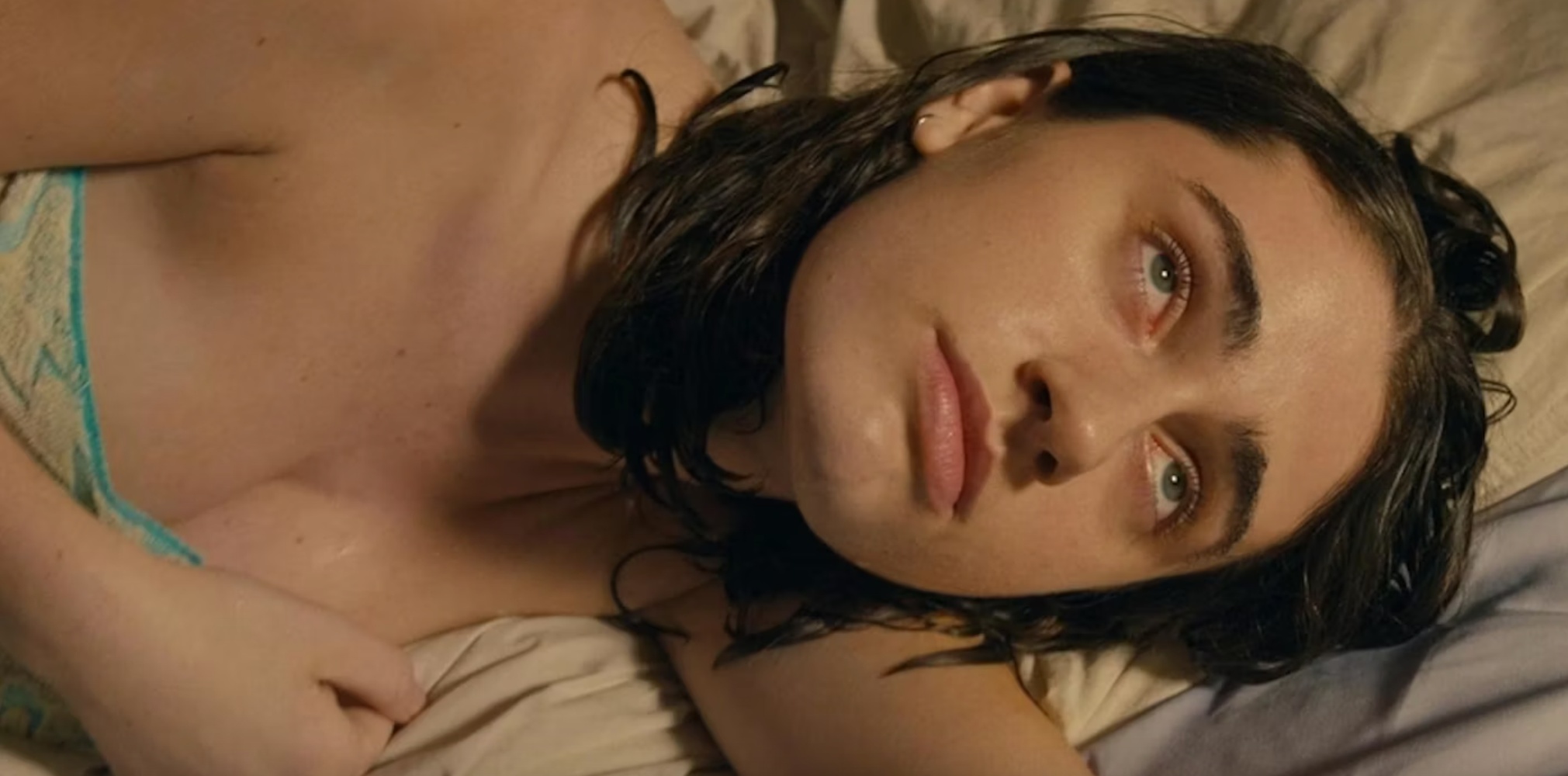Rachel Sennott continued her impressive run as a quick-witted, creatively vulgar comic in Bottoms, which premiered during South By Southwest’s second night. But she does something more impressive in Ally Pankiw’s I Used to Be Funny, her second starring turn in this festival that highlights her full dimensionality. Though she still gets to show off her standup skills here––Sennott garners laughs in a series of scenes performing in comedy clubs, something movies and television are rarely able to achieve––this character study about trauma’s unpredictable ripple effects doesn’t foreground too many jokes. As the title implies, this is a movie about losing (and attempting to regain) a defining characteristic due to circumstances out of one’s control.
When the movie opens, Sam (Sennott) has just discovered and become distressed over a 14-year-old (Olga Petsa) who’s gone missing. The significance of their relationship is unclear until Pankiw flashes back a few years earlier to Sam and her roommates––Paige (Sabrina Jalees) and Phillip (a scene-stealing Caleb Hearon)––navigating Toronto’s comedy scene. Sam isn’t a star, but her material on gender politics has gone viral enough with YouTube to become a name. Still, in need of some extra cash, she decides to take an au pair job that requires watching over Brooke, an 11-year-old living with her aunt and father (Jason Jones) after her mother’s recent terminal diagnosis. Though their connection starts prickly, Sam proves her worth to Brooke by discussing Twilight and taking her to the movies, incorporating Brooke into Sam’s late-night life.
But as Pankiw returns to the present timeline, Sam and Brooke’s disconnection is etched in further relief, marked by the frame’s deep shades of blue and gray. Sam has quit standup despite her friends’ efforts to get her back on stage; she’s overwhelmed and still processing the unexplained inciting incident that disrupted her cheery rhythm of life. She can’t even stand to be around her ex-boyfriend, whose kindhearted attempts to reconnect and check in with Sam go unappreciated. “It just makes me feel like shit to be around the people who were there,” she tells him, hinting at the defining moment with slightly more detail and relaying the unexpected realities that exist with PTSD.
The parallel-editing structure has an effective purpose; it’s only occasionally difficult to know when Pankiw has shifted between timelines. But the device and decision to withhold information about what’s been impacting Sam eventually starts feeling a little manipulative. It’s not that she telegraphs the answer. In an effort to depict an authentic reality, Pankiw’s flashbacks and flashforwards offer more insight into the way that the brain processes traumatic events, which can scramble timelines and heighten specific senses. You just want to experience Sennott’s breakdowns and depressive episodes with a little more clarity without the movie feeling like a puzzle box.
To her screenplay’s credit, Pankiw manages to avoid a full-on mystery. The worry in these kinds of movies is that the effort to obfuscate and hint at the heart of the problem doesn’t pay off. But the reveal here is thoughtfully constructed (a courtroom scene shows the humiliating way jokes can be taken out of context to serve a prosecutor’s favor) and further clarifies Brooke’s decision to abandon her family. “Don’t think about Euphoria,” Phillip tells Sam before she begins a feverish, final hunt for Brooke. It’s a humorous touch to this contemporary story about reconciling the past by taking control of the present, and using your gifts to get you out of the dark.
I Used to Be Funny premiered at SXSW 2023.

